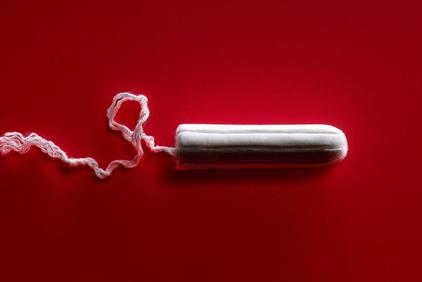The Women Taking On Menstrual Equality
By Abigail Jones | April 21, 2016
 YASU + JUNKO
YASU + JUNKO
On Wednesday, Newsweek published a cover story about one of the most ignored human rights issues around the world: menstruation. “The Fight to End Period Shaming Is Going Mainstream” explores the global revolution over periods, from advocates working to eliminate the tampon tax and designers revamping menstrual products to culture-shifting efforts in the developing world.
For an issue that hasn’t been talked about publicly for centuries, it was a moment of collective catharsis for many: As Vox’s Emily Crockett wrote, “It’s about time.” Gloria Steinem tweeted, “Evidence of women taking their place as half the human race!” And comedian Jen Kirkman tweeted, “Every guy read this.” Not everyone agreed, like Sara Miller, who tweeted, “‘Menstrual equality…’ Really? This is our most pressing issue? Fucking ridiculous.”
Reactions to this cover story unearthed many more people and organizations striving to make menstrual products and education available to everyone. For example, here are some of the groups working to supply refugees with menstrual products.
In the U.S., marketing expert Nancy Kramer launched the “Free the Tampons” movement after giving a 2013 TEDxColumbus talk. It all started in 1981, when she walked into the women’s restrooms at her first client, Apple, and saw free tampons and pads on the counter. “Not all restrooms are created equal,” she said. Since then, she’s advocated for free menstrual supplies in all bathrooms outside the home. (In a Newsweek essay yesterday, activist Jennifer Weiss-Wolf argued that menstrual products should be free in schools.) “My goal before I die,” Kramer tells Newsweek, “is to change this social norm—that women are responsible for having a tampon or pad at all times. Yet we don’t walk around with rolls of toilet paper?”
Kramer explains that in calculations she’s done with schools and businesses, it costs $4.67 per woman to provide free pads and tampons for a year. “For less than a fancy cup of coffee at Starbucks, you can supply women in your place of business, school and worship with these items,” she says. “There is nothing a man’s body does that is equivalent to this, so I really in my heart believe if men menstruated, we would not be having this conversation.”
For an issue that hasn’t been talked about publicly for centuries, it was a moment of collective catharsis for many: As Vox’s Emily Crockett wrote, “It’s about time.” Gloria Steinem tweeted, “Evidence of women taking their place as half the human race!” And comedian Jen Kirkman tweeted, “Every guy read this.” Not everyone agreed, like Sara Miller, who tweeted, “‘Menstrual equality…’ Really? This is our most pressing issue? Fucking ridiculous.”
Reactions to this cover story unearthed many more people and organizations striving to make menstrual products and education available to everyone. For example, here are some of the groups working to supply refugees with menstrual products.
In the U.S., marketing expert Nancy Kramer launched the “Free the Tampons” movement after giving a 2013 TEDxColumbus talk. It all started in 1981, when she walked into the women’s restrooms at her first client, Apple, and saw free tampons and pads on the counter. “Not all restrooms are created equal,” she said. Since then, she’s advocated for free menstrual supplies in all bathrooms outside the home. (In a Newsweek essay yesterday, activist Jennifer Weiss-Wolf argued that menstrual products should be free in schools.) “My goal before I die,” Kramer tells Newsweek, “is to change this social norm—that women are responsible for having a tampon or pad at all times. Yet we don’t walk around with rolls of toilet paper?”
Kramer explains that in calculations she’s done with schools and businesses, it costs $4.67 per woman to provide free pads and tampons for a year. “For less than a fancy cup of coffee at Starbucks, you can supply women in your place of business, school and worship with these items,” she says. “There is nothing a man’s body does that is equivalent to this, so I really in my heart believe if men menstruated, we would not be having this conversation.”
